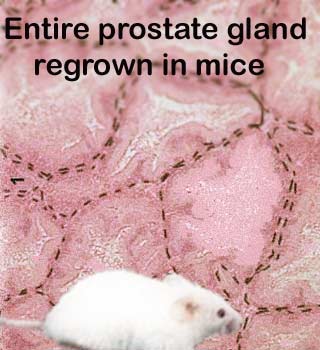
Prostate is a gland located near the bladder in men. It is responsible for making and expelling semen. However it is also one of the leading causes of cancer in men, particularly older men. In the UK, Nearly 10,000 men die from the disease every year.
According to Professor Robin Lovell-Badge, MRC National Institute for Medical Research, “Of course the main clinical problem with the prostate gland is not a need for additional ones, but their overgrowth, which often turns to prostate cancer. However, knowing the identity of these stem cells may eventually allow the development of therapies that specifically target these cells in a way that keeps them under control.â€
“However, it is a widely held view that cancers originate from normal stem cells, so this discovery will be a significant boost to prostate cancer research aimed at understanding how this deadly disease develops,†says Professor Malcolm Alison, Professor of Stem Cell Biology at Barts and The London School of Medicine and Dentistry in agreement.
For the new research, scientists were successful in isolating single cells that had the capacity to generate an entire prostate. The researchers reveal that the cell in the limelight is a particular type of stem cell that can divide to form different types of cells in the glands of mice. These stem cells experts found when transplanted back into mice developed into completely new glands.
Well just in case you are thinking doctors will try regrowing prostates in humans, sorry to disappoint you. That may not be happening soon as scientists believe that we don’t need a prostate to survive. Also incorporating a new gland in the body will involve a complex surgery that would require the new gland to get connected to not only the organ in question but also its related nerves that control its activity.
Researchers are instead looking at the novel technique to identify the growth of prostate cancer cells and may be even a possible cure for the fatal disease.
The study is published in the journal Nature

